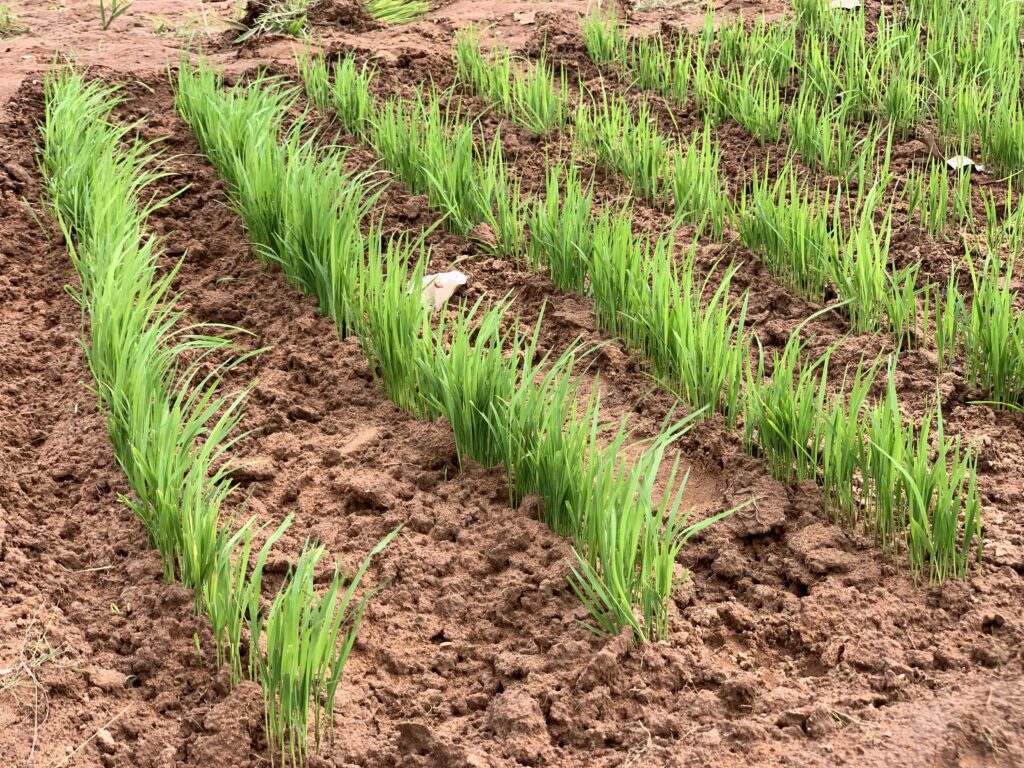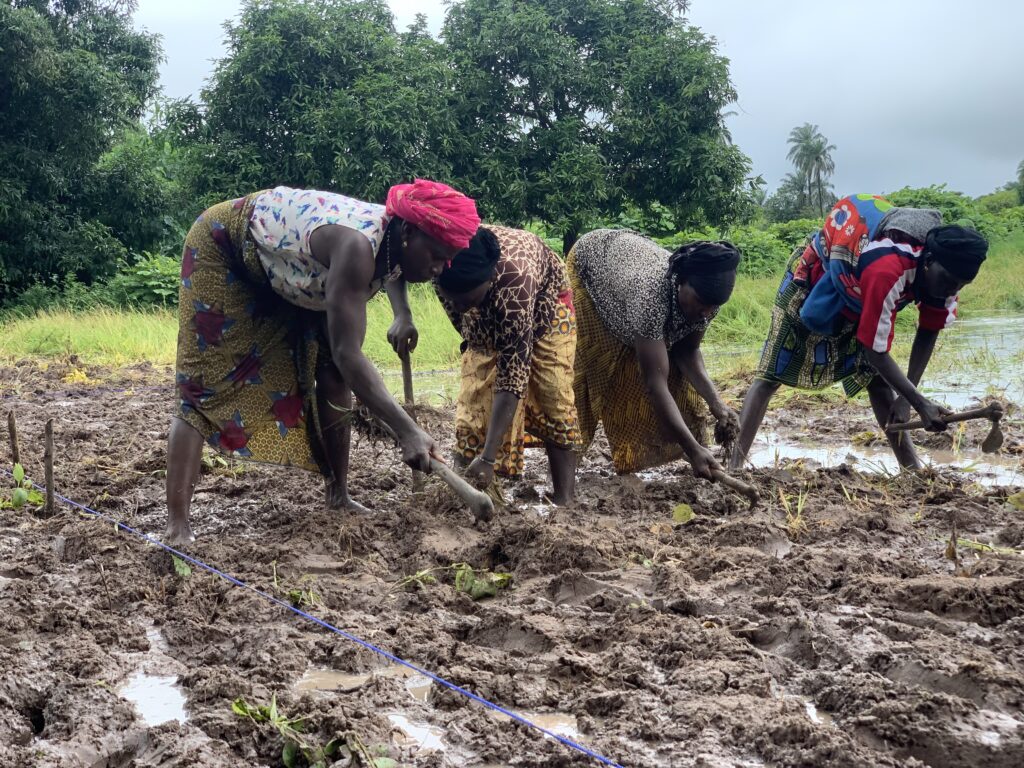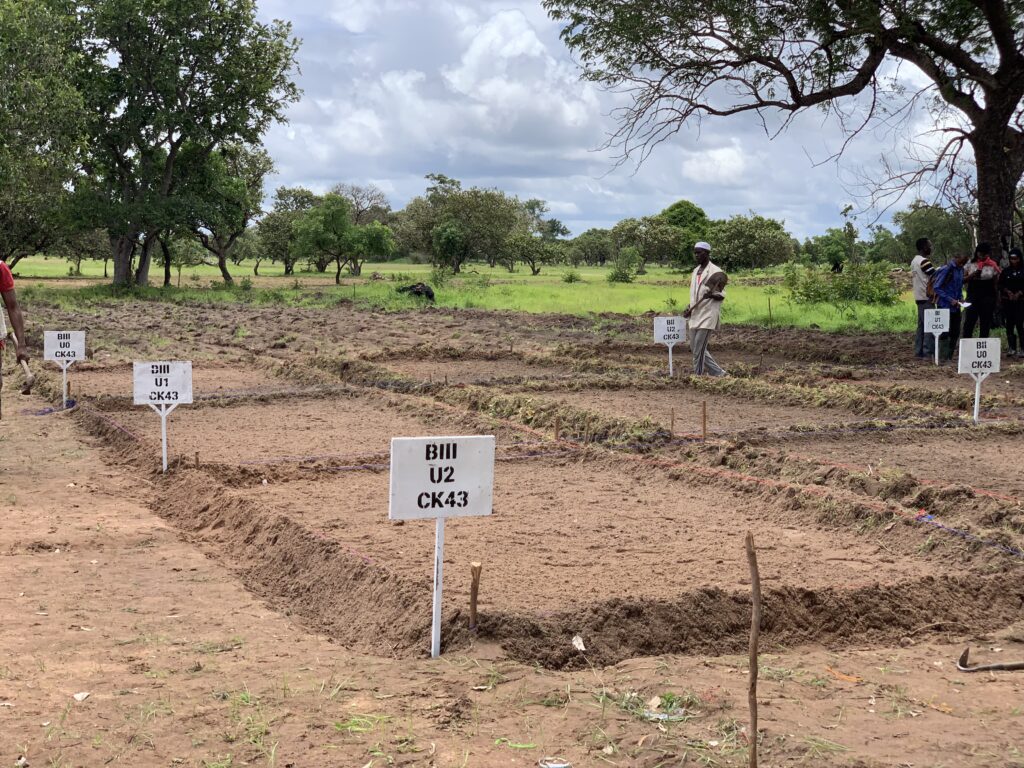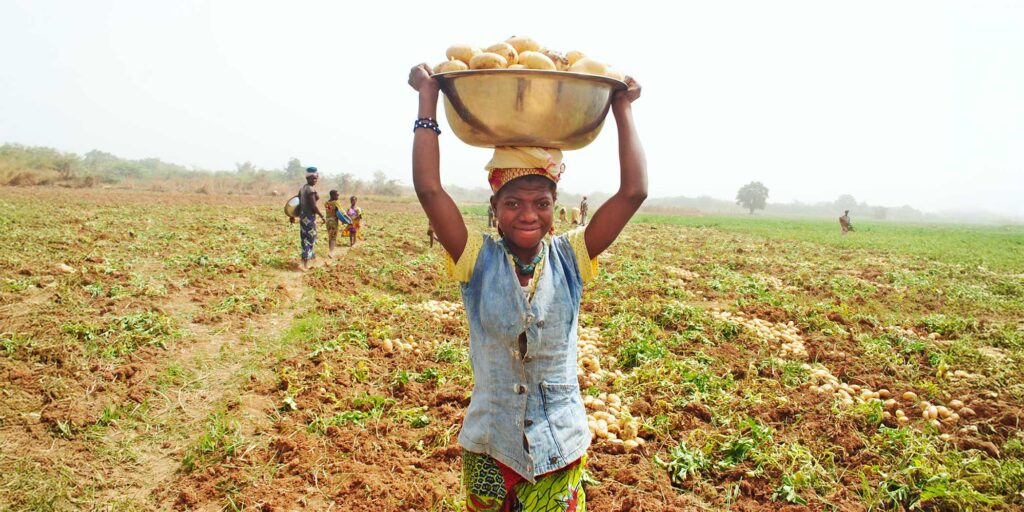
The Integrated Rural Development Project in Gaoual, Koundara, and Mali (PDRI/GKM), funded by the Islamic Development Bank (IsDB) and implemented by Guinea’s Ministry of Agriculture with technical support from IFDC, carried out a field mission August 14-29 to establish research trials on urea deep placement (UDP) technology.
These trials marked a decisive step in the implementation of innovative agricultural practices aimed at sustainably improving rice productivity and promoting the efficient use of nitrogen fertilizers. The main objective was to scientifically test and validate the performance of UDP technology within Guinea’s rice production systems.
“With deep placement, I noticed that the plants stay greener and stronger, even after several weeks. What we’ve seen here is truly different and promising for the future.”
Ataoulaye Diallo, rice farmer from Mali
UDP consists of inserting urea granules deep into the soil, close to the rice roots. This technique promotes better nitrogen uptake by the plant, reduces fertilizer losses caused by leaching and volatilization, and minimizes the environmental impact associated with chemical fertilizer use.
Preliminary results demonstrate that UDP is an effective and sustainable solution to strengthen farmers’ resilience, increase yields, and preserve agricultural ecosystems.

To begin the trials, IFDC technical teams established three experimental sites in the project’s three prefectures. Each site followed a rigorous scientific protocol based on a randomized complete block design, wherein treatments are randomly assigned to control for variability, with three treatments: no fertilizer (control), broadcast urea, and UDP application at a set rate.
The technical teams successfully established the trials across the three sites, with seedbeds meeting all technical requirements. Field agents also participated in training on trial management, digital data collection using KoboCollect, and geo-referenced plot monitoring.
These experimental setups were designed and implemented in close collaboration with local farmers, ensuring ownership and engagement from the start.
Ataoulaye Diallo, a rice farmer from Mali, remarked on the encouraging trial results: “In the past, we were used to using a lot of urea, but yields were not improving. With deep placement, I noticed that the plants stay greener and stronger, even after several weeks. What we’ve seen here is truly different and promising for the future.”
The success of these trials rested on strong collaboration not only with individual local farmers like Diallo but also among local and prefectural authorities, Prefectural Directorates of Agriculture, and farmer groups, creating a collective momentum around sustainable soil fertility management.

This synergy promoted community ownership of UDP technology, knowledge exchange between technicians and farmers, and the long-term adoption of improved agricultural practices in the project areas.
Paul Tamba Ouendouno, PDRI/GKM Field Facilitator, explained, “This experiment comes at the right time. It strengthens our capacity as facilitators and clearly shows that it is possible to increase yields while protecting the environment. This type of participatory and scientific initiative allows us to draw concrete lessons from the field.”
The next research steps will focus on regular agronomic monitoring of the trials, data collection and analysis, and the wider dissemination of results. These actions will confirm the effectiveness of UDP and help integrate it into local agricultural practices, contributing to a more efficient, profitable, and environmentally friendly rice production system.
Through this initiative, PDRI/GKM reaffirms its commitment to sustainable, effective, and innovative rice farming in Guinea. By combining scientific research, community participation, and technology transfer, the project aims to build a resilient and inclusive agricultural system, driving food security and economic empowerment for Guinean farmers.
The PDRI/GKM project (2019–2025) supports agricultural growth and rural development in Gaoual, Koundara, and Mali prefectures in Guinea by boosting production, improving market access, and strengthening infrastructure. PDRI/GKM is funded by the Islamic Development Bank (IsDB) and implemented by IFDC, the Ministry of Agriculture and Livestock (MAG/EL), Guinea Agronomic Research Institute (IRAG), the Rural Promotion and Agricultural Extension Service (SERPROCA), and farmer organizations.





